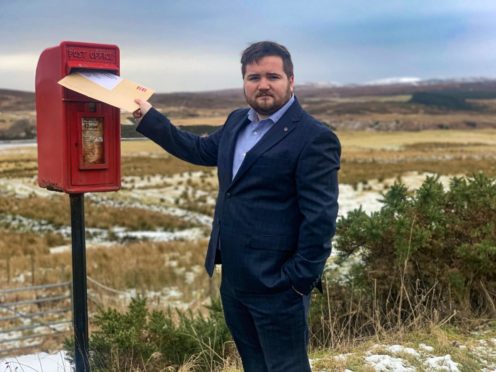A petition against controversial changes to council boundaries has been backed by 1,000 Highland residents.
Struan Mackie, a councillor for Thurso and north-west Caithness, mounted the campaign online and has gained cross-party councillor support along with signatures from across the region.
He said the proposed changes represent a move towards the “relentless centralisation of rural Scotland”.
Mr Mackie has now sent the petition to the Boundary Commission (BC), to demonstrate the strength of feeling across the Highlands and Argyll and Bute.
He said the BC’s proposals for Caithness and Sutherland will “stretch local representation to breaking point” and undermine democracy in areas where residents often feel they lack a voice.
The BC proposes to make Sutherland one huge ward with four councillors, and to drop a councillor each in Caithness and Skye.
Mr Mackie said the proposals come at a time when more needs to be done to support rural areas.
He said: “The ward boundaries that have been presented for public consultation would be unworkable for the current levels of council representation, let alone with a reduced compliment of councillors being sent to the Highland Chamber in Inverness, from 74 to 72.
“This is particularly apparent given the efforts to combat population decline and the economic diversification agenda which attempts to replace the jobs that will be lost at the Dounreay and Vulcan nuclear sites near Thurso in the coming years.
“There is widespread disappointment that we are engaging in a further review of the boundaries, despite wide-ranging changes in 2017.
“It seems deeply unfair that legislation that was intended for island communities will see councillors in Caithness, Sutherland, Ross and Skye slashed.”
Argyll and Bute also stands to lose representation in its island wards.
Mr Mackie added: “There too, proposals for reduced councillors for some of the most remote parts of the authority have been widely criticised.”
Last night, the councillor said he had been overwhelmed by the community support for the petition.
“It is clear just how widespread the opposition is to the Boundary Commission’s plans and that they simply cannot force through this destruction of rural democracy,” he said.
“These proposals would only accelerate the relentless centralisation of rural Scotland, removing the ‘local’, from local services.”
Mr Mackie has now vowed to turn the spotlight on Holyrood to keep up the momentum of his campaign.
He said: “Aileen Campbell, the cabinet secretary for communities and local government, seemed oblivious to the community upset at last week’s Holyrood questions when she was questioned on the proposals.
“It is vital that the Scottish Government understand the impact of the Boundary Commissions plans that are the direct result of Scottish Government legislation.
“They must intervene and use their powers to halt this.
“Scotland’s remote and rural communities will not forgive the erosion of local democracy and representation at the expense of an unelected quango, who have billed the taxpayer £160k so far for their axework, a figure I obtained from an FOI to the Boundary Commission a few months ago.”
Ms Campbell, during the Holyrood talks, said that councils were being encouraged to engage with the commission and articulate any concerns.
However, she added that if any opposed parties wanted to alert the Scottish Government to certain issues, or if things could be done differently, then they should let them know.
After the session, Highlands and Islands Labour MSP Rhoda Grant explained that she had already written to local government minister Kevin Stewart outlining Highland Council’s arguments against the changes.
In January, council leader Margaret Davidson advised the commission that the local authority rejected the proposals in their entirety and formally requested that the process be halted immediately.
